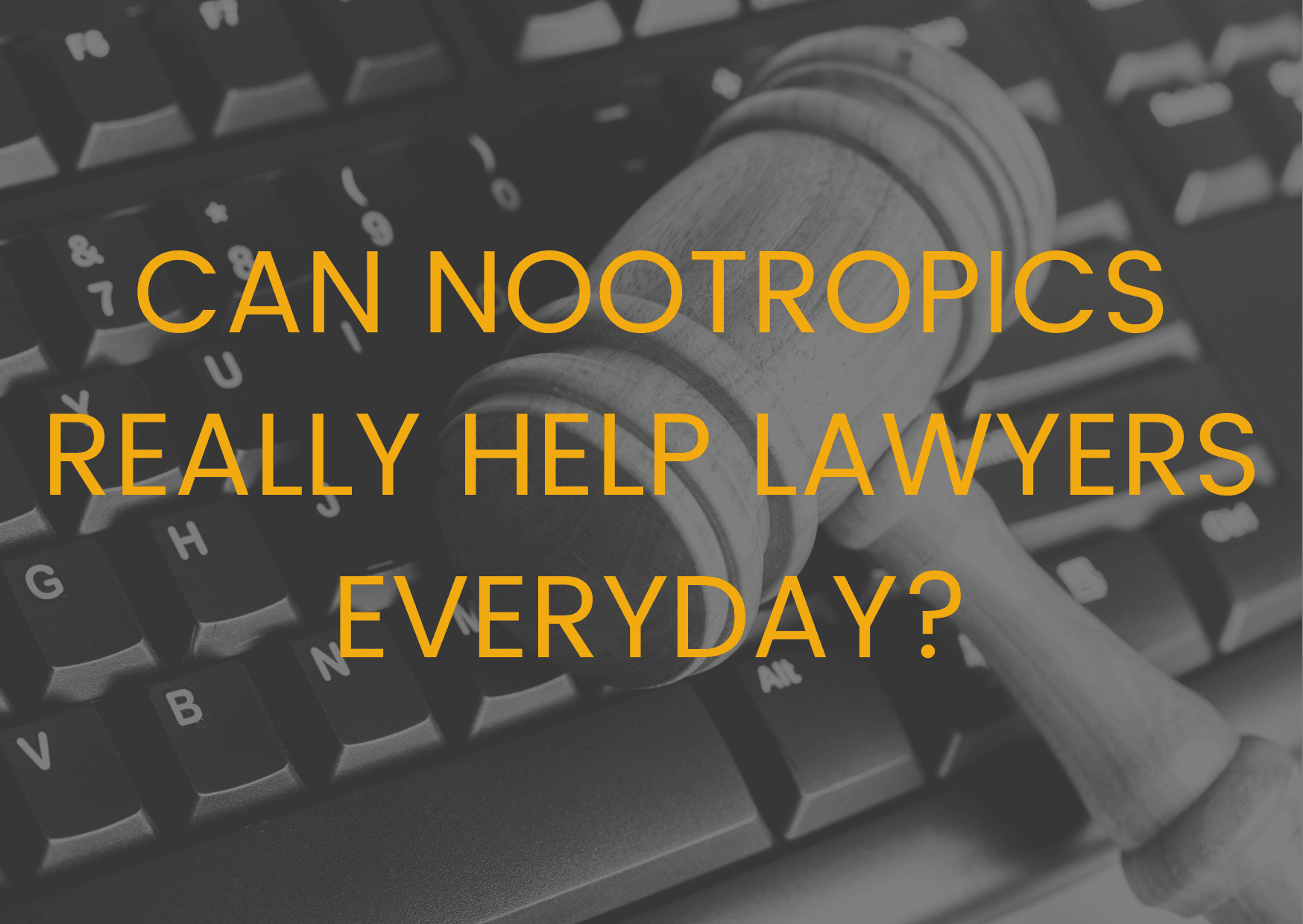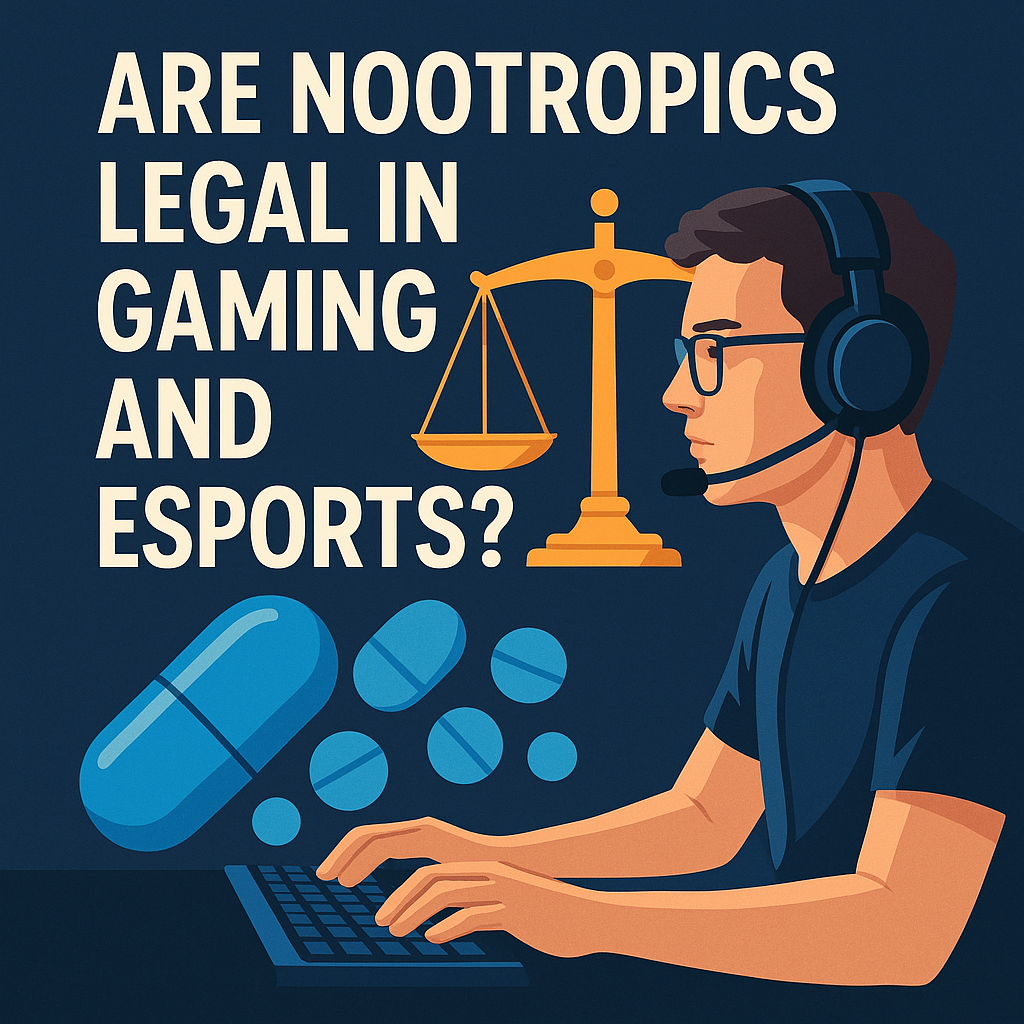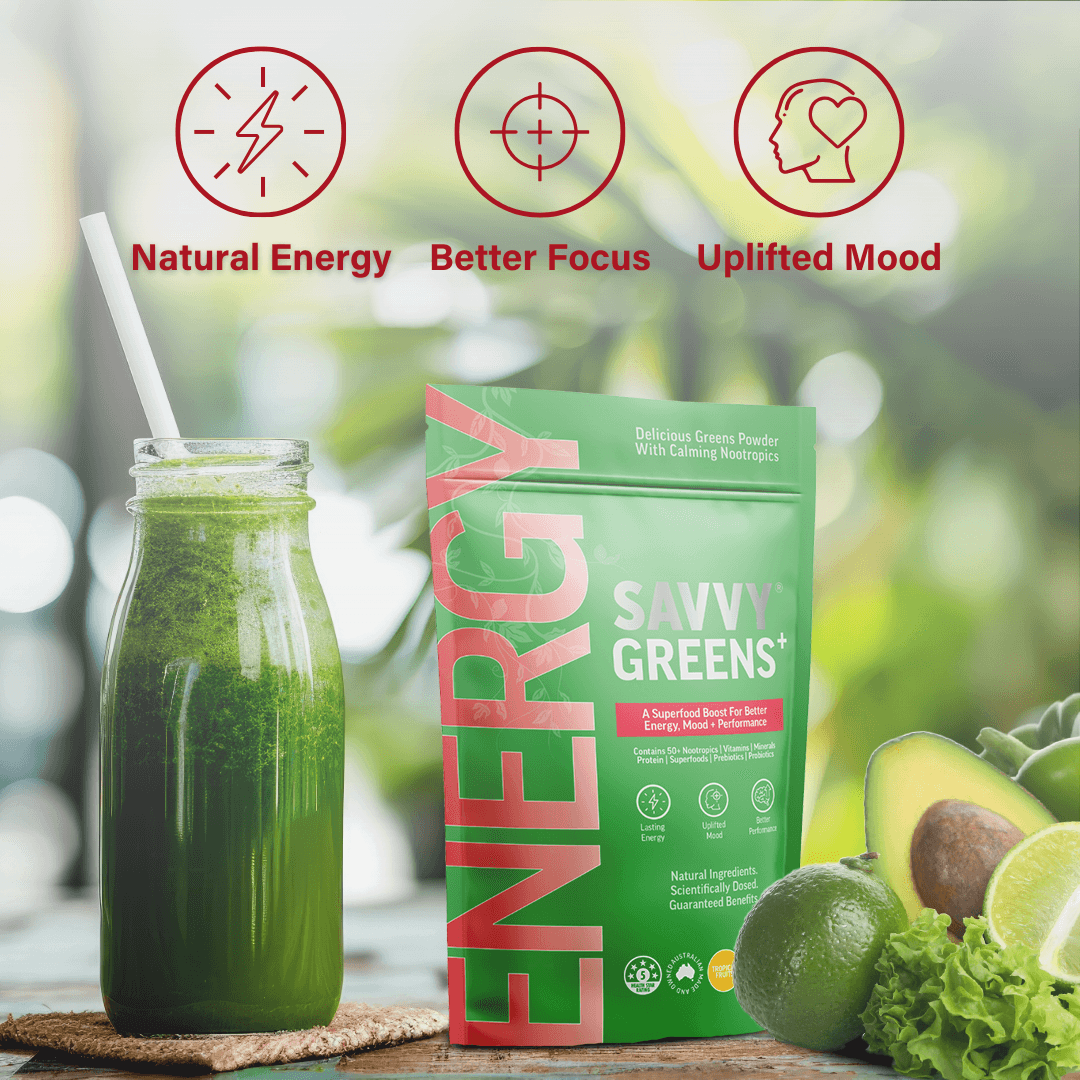
Can Nootropics really help lawyers everyday?

Can Nootropics really help lawyers everyday?
Article at a Glance
|
What is the lifestyle of a lawyer like?
A typical day in the life of a lawyer does not consist of a nine-to-five schedule with an hour or more for lunch, but rather one with long hours preparing court documents, communicating with clients and catching up with non-billable work. According to Bloomberg View, an attorney at a big legal firm works an average of 50-60 hours weekly. 75% of lawyers regularly work outside regular business hours. [1] [2] This lifestyle that comes with being a lawyer and working in the legal field may be stressful and draining. It comes from coping with various pressures daily. Lawyers tend to pull all-nighters, juggle strict deadlines, wake up early, deal with complex and emotional matters, eat on the go or have fast food at their desks, and work long, unpredictable hours with little time for exercise or sleep. This lifestyle is frequently praised in the industry and is seen as the only way to succeed in the competitive, high-pressure legal world. Lawyers who live in this way are seen as successful, and hard workers who know what they want and will stop at nothing to achieve the goals of being the best in their field. Successful attorneys and lawyers have a strong work ethic and perseverance, however, this can lead to increased lawyer stress. [3]

The effects of stress on lawyers
The issue with this way of living is that it has negative effects on physical health, such as muscle strain and pain, exhaustion and difficulty sleeping, stomach and digestive problems, high blood pressure and headaches, dizziness or shaking. Furthermore, it can have a negative impact on mental health.
A leading cause of long-term illnesses is now stress [4] and mental disorders, such as depression, anxiety, and drug addiction problems. Many attorneys suffer from these mental health concerns due to the enormous workload, and a fast-paced, stressful lifestyle, but many firms have not reduced the constraints on lawyers, leaving them in a state of tremendous stress. Attorneys are left to put their physical and mental needs to the side and focus on what their clients and companies expect of them. Not only does this put stress on their health, but also affects their memory as their attention span diminishes from having to multitask without interruption for a break.

What are some of the treatments to manage stress
When these symptoms are not treated or managed properly, mental fatigue, anxiety, burnout, and chronic stress can begin to worsen a person's short-term memory and mental functioning. It is critical for lawyers to include some of these practices into their daily routines to help with stress management [5] and their constant non-stop lifestyle:
- Therapy
- Exercise
- Knowing limits and setting boundaries
- Keep up your hobbies
- Setting Goals
- Make time for loved ones
- Practice mindfulness
- Getting good quality sleep
- Healthy diet
- Nootropics

How Nootropics can help lawyers
How can Nootropics help lawyers in overcoming chronic exhaustion and avoid a state of perpetual stress? To deal with these symptoms, many lawyers seek out ‘smart drugs’ [6] such as Ritalin or Adderall to perform at their maximum capacity constantly. However, not only are these ‘smart drugs’ illegal, but they are also extremely dangerous, have long-term effects that are damaging and consuming large doses can even have worse health consequences. Other types of supplements that are taken to help with stress tend to have a hazy effect on the brain. These supplements can help leave a person feeling relaxed and less stressed, however, their cognitive thinking is diminished, and they are left feeling even more exhausted and tired, which is not helpful for lawyers. Natural nootropics, however, are a fantastic and healthier alternative to use for overcoming the stress of a fast-paced, stressful lifestyle, as they will help allow individuals to achieve their full potential and the peace and joy that their job can bring them. [7] Nootropics are supplements with natural brain-boosting qualities. They can help prevent stress from becoming unmanageable and leading to more serious health problems, and these supplements are also a safe and effective approach to managing and preventing stress-related health problems. Nootropics can provide individuals with a sharpened focus, improved productivity, lower stress levels, [8] and more brain capacity, which can help to alleviate many of the challenges that come with working as a lawyer. [9]

A type of nootropic that helps with stress and mental health issues is Rhodiola Rosea. It has anti-stress properties and helps with stress reduction by suppressing cortisol production. Cortisol [10] is a system that works in the brain to control an individual's mood, motivation, stress and fears. High levels of cortisol in the system are what can trigger stress hormones. Rhodiola Rosea is also an adaptogen, which means it is effective at helping the body adapt to stressful settings and environments which helps with keeping cortisol at a normal level.
Ginkgo Biloba is another nootropic that can be found naturally from the extract of leaves from a tree and is also available as a supplement. Interestingly the Ginkgo Biloba is one of the world's oldest living trees, dating back 200 million years. It was used in Asian countries for improving blood circulation and as an antioxidant for the brain to help with memory improvement. [11] The supplement has proven to help with mental stress in the body by reducing the amounts of cortisol hormones. It also reduces high blood pressure, anxiety and other memory problems an individual, such as a lawyer, can face.
Panax Ginseng is a root used in herbal medicine. As a dietary supplement, ginseng was used in ancient medicine to enhance immunity and energy. In addition to boosting cognition, it has a number of other benefits. It is used to help manage health conditions, stress levels and helps lower blood pressure. [12]
To summarise, by adding these nootropics into their everyday lifestyle, lawyers will notice a difference in their health and be able to work to a better standard and minimise the risks of stress-related illness and burnout. While these stressors from life as a lawyer won’t go away completely, their bodies will be able to react to stress more positively and help them to have a healthier overall lifestyle.
References:
[1] Inside Look: A Day in the Life of a Lawyer[2] Resilience During Times of Uncertainty
[3] Stress and the legal profession
[4] Stress








